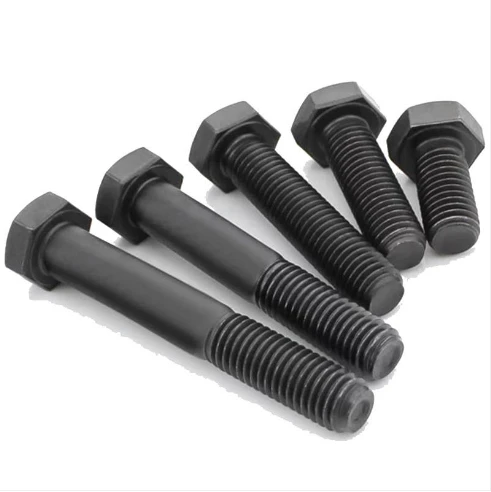buy metal anchor bolts
វិច្ឆិកា . 17, 2024 12:51 Back to list
buy metal anchor bolts
Everything You Need to Know About Buying Metal Anchor Bolts
When it comes to construction and engineering projects, the significance of selecting the right hardware cannot be overstated. Among these crucial components, metal anchor bolts play an essential role in providing structural integrity and stability to various structures, ranging from buildings to bridges. In this article, we'll explore what metal anchor bolts are, their different types, the factors you should consider when buying them, and where to find high-quality options.
What Are Metal Anchor Bolts?
Metal anchor bolts are heavy-duty fasteners used to attach structural elements to concrete or masonry. They are designed to resist tension and shear loads, making them vital for maintaining the stability of buildings and other structures. Usually made from steel or stainless steel, these bolts come in various lengths, diameters, and grades to suit different applications.
Types of Metal Anchor Bolts
1. Mechanical Anchor Bolts These bolts use expansion mechanisms, such as wedge anchors, to grip the sides of the drilled hole in concrete. They are typically used for lighter loads and in situations where the integrity of the concrete must remain intact.
2. Adhesive Anchor Bolts These bolts require an adhesive or epoxy to secure them in place. They offer strong bonds and can be used in various environments, making them suitable for heavy-duty applications.
3. Sleeve Anchors These consist of a bolt and a sleeve that expands upon installation, providing a secure hold in hollow and solid substrates.
4. Hook Bolts Ideal for suspending items from concrete ceilings, hook bolts have a unique design allowing them to hold various fixtures securely.
Factors to Consider When Buying Metal Anchor Bolts
When purchasing metal anchor bolts, it's essential to consider several factors to ensure you choose the right type for your needs
1. Load Requirements Determine the load capacity needed for your project. Select anchor bolts that can handle the specified weight and forces that will be applied to them.
2. Material The choice of material impacts the performance of anchor bolts significantly. Stainless steel is corrosion-resistant and suitable for outdoor or damp environments. On the other hand, carbon steel bolts are more affordable but may require protective coatings.
buy metal anchor bolts

3. Bolt Length and Diameter The length and diameter must be adequate for the thickness of the materials being connected. Too short or too thin bolts may not provide the needed strength.
4. Environmental Conditions If the anchor bolts will be exposed to harsh weather or corrosive substances, consider options with special coatings or made from corrosion-resistant materials.
5. Installation Method Understand the installation process required for the specific type of anchor bolt. Some may require special tools or adhesives, while others may be easier to install.
6. Regulations and Standards Ensure that the anchor bolts you choose meet industry standards and local building codes. Compliance is crucial for safety and durability.
Where to Buy Metal Anchor Bolts
With the significance of selecting the right metal anchor bolts, sourcing them from reliable suppliers is equally important. Here are some options
1. Local Hardware Stores For smaller projects or immediate needs, local hardware stores can be an excellent option. They often carry a variety of anchor bolts.
2. Specialized Suppliers Companies that specialize in construction materials may offer a wider range of options, including various grades and finishes of anchor bolts.
3. Online Retailers Websites like Amazon, Grainger, and McMaster-Carr provide extensive inventories of metal anchor bolts. Shopping online allows you to easily compare prices and specifications.
4. Manufacturers For large-scale projects, consider purchasing directly from manufacturers. This option may offer bulk pricing and the ability to customize your order based on specific requirements.
Conclusion
Buying metal anchor bolts may seem like a trivial decision in the grand scheme of a construction project, yet it plays a pivotal role in ensuring stability and safety. By understanding the different types, considering key factors, and sourcing from reputable suppliers, you can make informed decisions that will positively affect the outcome of your projects. Always remember that investing time in selecting the right hardware will pay off in the long run!
Latest news
-
Silver Screws Supplier: High-Quality Fasteners for Various Industries
NewsJul.30,2025
-
Top Spike Wheel Nuts Supplier - High Quality & Custom Options Available
NewsJul.29,2025
-
Top Wire Bolts Suppliers & Manufacturers – Quality Fasteners Factory
NewsJul.29,2025
-
Top Wire Bolts Suppliers & Manufacturers – Quality Fastener Solutions
NewsJul.29,2025
-
Wire Bolts Suppliers & Exporters - Quality Manufacturer & Factory Direct Price
NewsJul.29,2025
-
Top Metric Wood Screw Companies – Reliable Manufacturer & Exporter
NewsJul.28,2025
